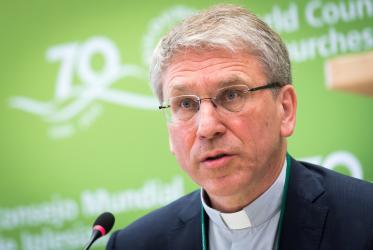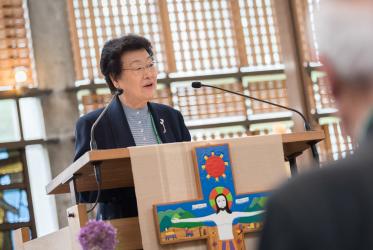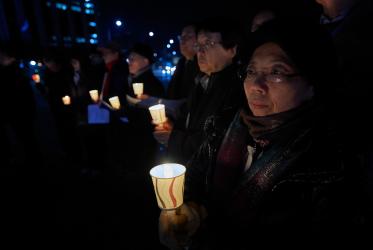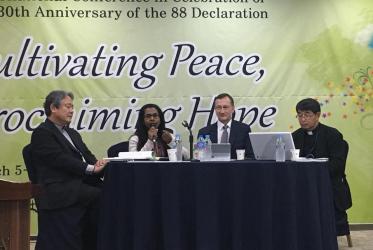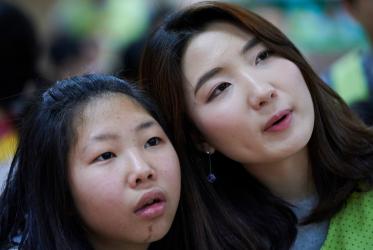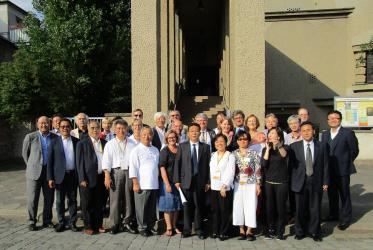Displaying 61 - 80 of 130
에큐메니칼 대표단이 북한을 방문하다
07 May 2018
WCC welcomes “powerful sign of hope” on Korean Peninsula
08 March 2018
Asian church leaders exchange ideas on diaconia
19 December 2017
The whole world is praying for peace on the Korean Peninsula
11 August 2017
WCC urges end to escalation in Korea
05 July 2017
“Overcoming economic injustice” vision of WCC’s Athena Peralta
23 February 2017
New videos help congregations hasten HIV response
20 October 2016
